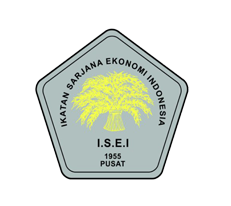The Moderating Role Of Knowledge Sharing On The Influence Of Competency And Worklife Balance On Organizational Citizenship Behavior (OCB)
https://doi.org/10.34308/eqien.v14i2.1980
Keywords:
Knowledge sharing, Competence, Worklife Balance, Organizational Citizenship Behavior (OCB).Abstract
This research aims to analyze the role of knowledge sharing in moderating the influence of competence and work-life balance on Organizational Citizenship Behavior (OCB)_ in BKD Central Java Province. The research population was 145 people, all of whom were BKD employees of Central Java Province. The sampling technique was carried out using purposive sampling, based on the criteria of employees with a minimum education of Diploma III and work experience of at least (3) three years, a total of 106 employees. The SPSS version 22 program was used for data analysis in the form of multiple linear regression. The research results show that competence has a positive and significant effect on OCB, work-life balance has no effect on OCB, knowledge sharing is not a variable that moderates the effect of competence on OCB but acts as a moderating variable on the effect of work-life balance on OCB. Knowledge sharing strengthens the influence of work-life balance on OCBDownloads
Download data is not yet available.
Downloads
Published
2025-06-16
How to Cite
Tristiana Rijanti, Lie Liana, Kasmari, Yamaudina Sahadizah, & Susilo Prayitno. (2025). The Moderating Role Of Knowledge Sharing On The Influence Of Competency And Worklife Balance On Organizational Citizenship Behavior (OCB). Eqien - Jurnal Ekonomi Dan Bisnis, 14(2), 568–588. https://doi.org/10.34308/eqien.v14i2.1980
Issue
Section
Articles










